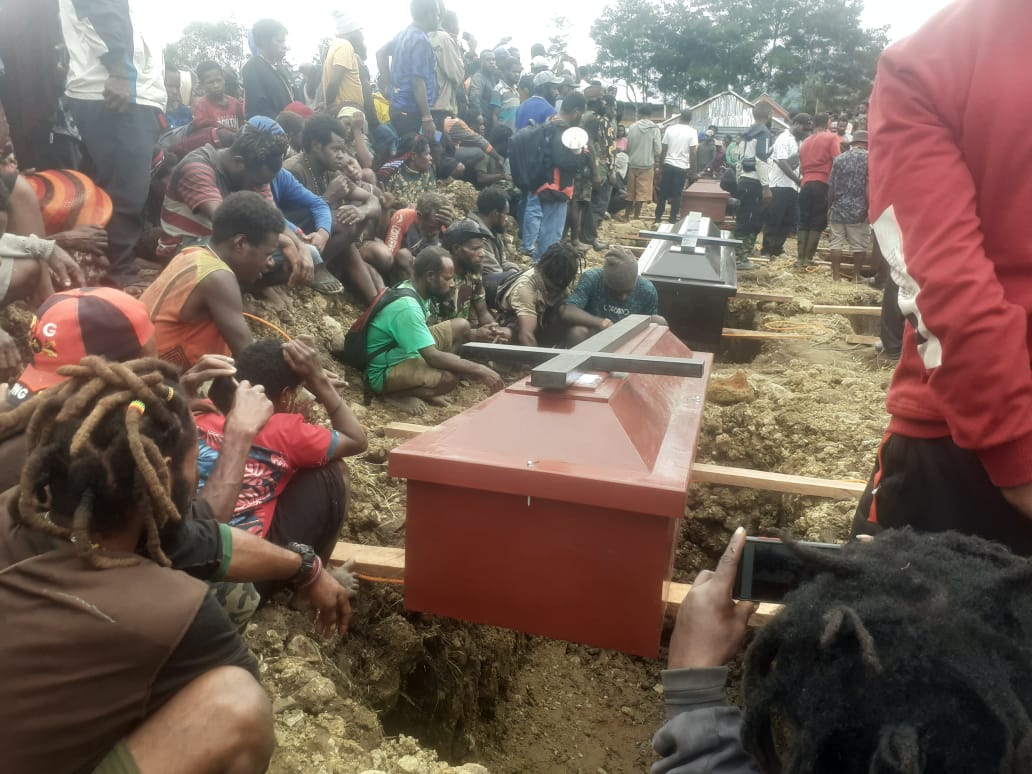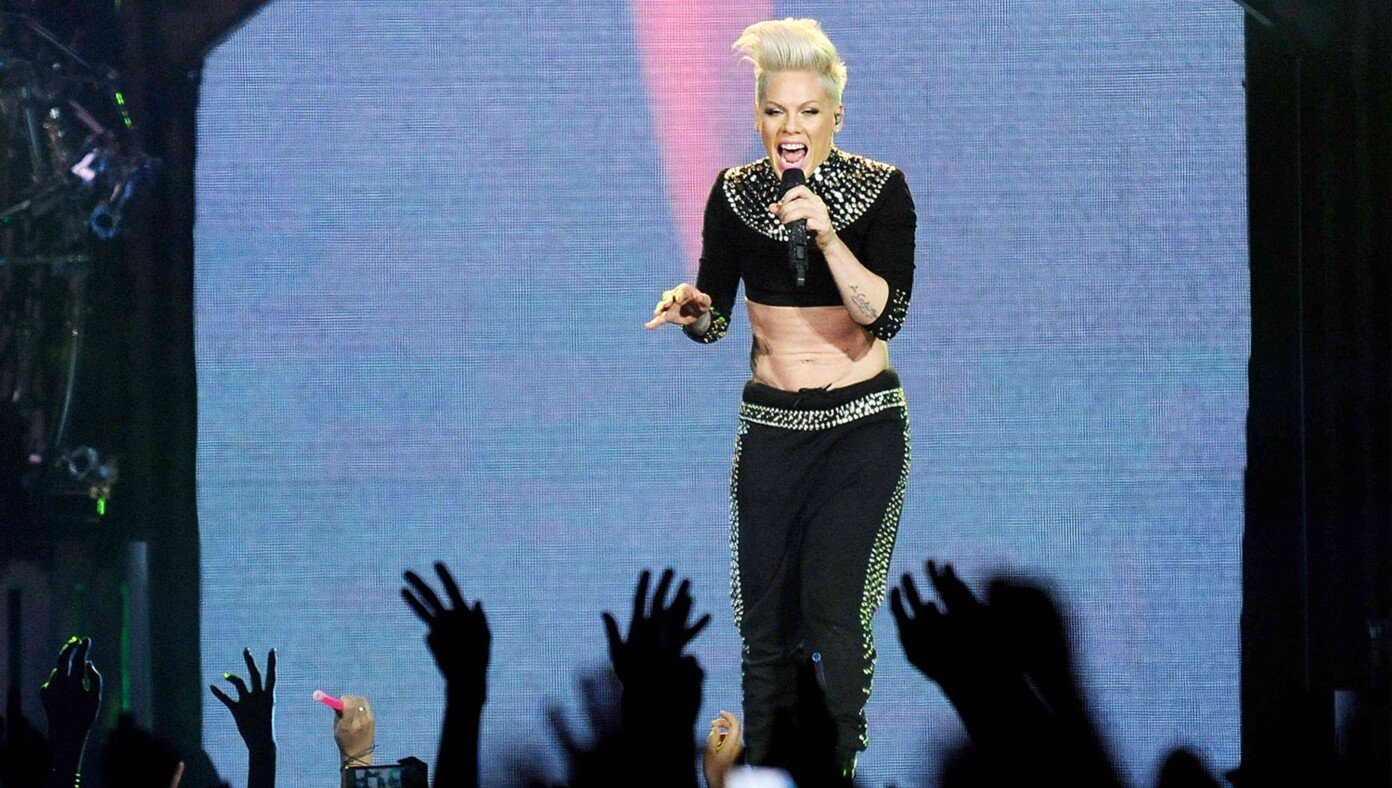
The slaughter commenced after what appeared to be the most benign of acts: a six-year-old girl trying to buy a bottle of olive oil.
On Feb. 23, the indigenous Papuan girl, who lives in the Wamena highlands of Papua, a restive province of Indonesia, was reportedly almost kidnapped when two roving grocery salesmen urged her to get into their car when she tried to buy the oil. She refused and ran away screaming for her family. Once her relatives heard what happened, they got on their motorbikes and chased the two men down.
When they reached them, a confrontation ensued and a large crowd amassed. The accused kidnappers were migrants from elsewhere in Indonesia, while the crowd were mostly indigenous Papuans. More than a dozen police appeared, some carrying assault rifles. The authorities asked the girl to recount what happened as she stood barefoot in the dirt, fidgeting and appearing fearful under the expectant gaze of the mob.
Police attempted to defuse the situation by telling the crowd there was no kidnapping threat, but the group became increasingly agitated.
“All of the people there were in a traumatic state and filled with fear,” Theo Hesegem, the director of local rights group the Papua Justice and Human Integrity Foundation, who also witnessed events that day, told VICE World News. “The situation got harder to control.”
In a video viewed by VICE World News, the murmurs of the crowd grew to a collective shout before a Papuan man lunged at one of the alleged kidnappers. The crowd surged forward, and soon after, locals started throwing stones and burning the homes of the alleged kidnappers and shops thought to belong to non-Papuan Indonesians.
Responding to the violence, witnesses say Indonesian security forces sprayed tear gas at the rioters while footage shows smoke from the burning buildings darkening the sky. Yet the police reaction only sparked further anger. The melee then shifted to the sound of live gunfire cracking through the crowd. Bodies began falling.
By the end of the incident, the two suspected kidnappers were stabbed to death and 10 indigenous Papuans were killed, their bodies riddled with bullets from security forces. Another 20 Wamena residents were injured in the attack.
“I suspect this was a targeted shooting as they hit vital areas,” Hesegem said. The Indonesian Mobile Brigade Corps—a paramilitary police force known as Brimob—began shooting “continuously,” he added.
“A number of people were shot in the neck, head, chest, back, as well as the thigh. Those were targeted shootings that resulted in death on the spot,” Hesegem said.
West Papua was incorporated into Indonesia after a controversial UN-sanctioned ballot in 1969, which was subsequently labeled a sham. Papuan separatists have waged an independence fight ever since, with Indonesian security forces leaving a long and well-documented record of human rights abuses against civilians and suspected fighters in their attempts to suppress the movement. Estimates for the number killed since the Indonesian takeover range from 100,000 to 500,000, in what has been described as a “slow-motion genocide.”
Papuan rights activists say the militarized presence has led to a “shoot first, ask questions later” mindset at the sign of any conflict. It’s a sentiment shared by a relative of one of last week’s victims.
Inggi Kogoya was inside his home when he first heard the gunshots ring out on Thursday. Flustered from the sudden sound of shooting, the 23-year-old ran outside to see what was happening. As soon as he exited his house he saw his older brother, Mian Karunggu, on the ground with a bullet wound in his chest.
“All they [Papuans] had was rocks in their hand to try to defend themselves, but it was the police and soldiers who started to shoot brutally at the people… It was a battle between rocks and weapons.”
Moments earlier his brother had been trying to protect the street by building a makeshift barricade, an instinctive act following years of living in conflict zones. Karunggu had fled to Wamena in 2018 to escape fighting in nearby Nduga regency, an area torn by clashes between Papuan separatist rebels and occupying Indonesian security forces. He was just one of tens of thousands displaced by the continuing conflict and made efforts to avoid the violence.
But a bullet found him anyway. “He fell straight away,” Kogoya told VICE World News.
“All they [Papuans] had was rocks in their hand to try to defend themselves, but it was the police and soldiers who started to shoot brutally at the people… It was a battle between rocks and weapons.”
Kogoya said his brother was rushed to a nearby hospital. It was too late. Gripping the side of a stretcher and clenching his teeth from the pain as one of Karunggu’s daughters stood over him, crying, he died from his wounds.
A quiet cattle farmer who had not been a part of the mob, according to his brother, the 30-year-old Karunggu left behind an infant girl and nine other children.
Karunggu’s coffin, along with eight others adorned with crosses, was lowered into the dirt of a local cemetery on Saturday as dozens of men squatted around the fresh graves beneath an overcast sky. The community remains mournful and traumatized, Kogoya said, though he has accepted his brother’s death as murder by security forces had become “normal” in his community.
“We leave all of this to God’s plan and may he punish the evil deeds,” Kogoya said.
“We are constantly living in trauma because they [Indonesian security forces] are around us and killing us as if we were animals,” Kogoya added. “As long as we’re living in Indonesia we will never have freedom as a Papua people. This massacre is not the first time. We feel anxious living our everyday lives.”

The deadly clash is the latest in a recent spate of incidents in Papua province.
According to experts, armed rebel groups in the region have become more dangerous than ever as they have adapted and modernized. Earlier this month, members of the West Papua National Liberation Army, the armed wing of the Free Papua Movement, took a New Zealand bush pilot hostage to protest an influx of Western aid to the Indonesian military. In October, four construction workers were killed in a separatist attack.
At the same time, non-violent resistance movements have also sprung up calling for peace while still demanding autonomy.
Esther Haluk, lecturer at Walter Post Theological Seminary in the Papuan capital, Jayapura, told VICE World News that Wamena has experienced decades of trauma at the hands of Indonesian security forces—a history that has kept the community on edge.
“We are not heard by the government,” she said, referencing the Indonesian national government’s decision to split Papua into three more provinces last year to gain greater control over the region. “People of West Papua have dissatisfaction that can trigger bigger conflicts.”
“There is a long history of human rights violations [in Wamena], but they were never solved by the government,” said Haluk, who is also from Wamena.
“This conflict can grow bigger because there is no justice. We know we won’t get justice even though we have victims,” Haluk said.
According to the Asian Human Rights Commission, an estimated 11,000 people died from conflict-related causes between 1977 and 1978 in the Jayawijaya region encompassing Wamena. In 2003, after an attack on Indonesian security supplies, at least nine people were killed in Wamena and thousands fled as the police and military retaliated. In 2019, at least 33 people were killed during riots allegedly sparked when a teacher called a Papuan student a “monkey.”
Amnesty International has reported cases of sexual assault and torture by Indonesian security forces, but even when investigations are launched, perpetrators are rarely brought to justice.
The two men suspected of last week’s kidnapping were confirmed dead by their relatives the day after the riots. “We are still grieving, there’s still an ongoing funeral for our beloved,” a relative of one of the men told VICE World News on Sunday.
Explaining the unrest that followed, Haluk said that longstanding and legitimate fears remain in Wamena over the abduction of Papuan children. For years, muslim clerics recruited Christian Papuan children in Wamena and other areas and sent them away to live in Islamic boarding schools on Java without their parents’ consent.
While the head of Indonesia’s National Human Rights Commission called for law enforcement officials to investigate last week’s shootings, Papuan provincial police indicated they would instead focus on finding the people who triggered the kidnapping accusations, which they have labeled false. Since the incident, more than 200 security personnel have been deployed to contain the situation.
Amnesty International released a statement condemning the violence and called for a thorough investigation. A spokesperson for the organization also told VICE World News that the incident was an “unlawful killing” by law enforcement.
However, Indonesian authorities have taken a different view.
“The news about child kidnapping is not true because those two gentlemen were salesmen who were doing their work,” said Papua Province Police Spokesperson, Ignatius Benny Ady Prabowo, in a TV interview on Saturday. “There is now an investigation to look for the perpetrators who disseminated the hoax and instigated provocations that led to the riot in Wamena.”
VICE World News approached the chief of the Indonesian National Police, Listyo Sigit Prabowo, for comment, but did not receive a response at the time of publishing. However, regional police chief Hesman Napitupulu told local media that he asked residents to “not to be provoked by things that turn the situation into chaos.”
Later on Sunday night, two vendors in Wamena were also attacked, reportedly stabbed by an unidentified group. And although the violence has simmered in Wamena as of Monday, for now, many are worried that more bloodshed may be on the horizon.
“The events that occurred in Wamena indicate the repeated cases of violence that have claimed the lives of many civilians in Papua,” said Usman Hamid, executive director at Amnesty International Indonesia, in a statement. “Acts of violence, let alone causing many casualties, will only escalate the cycle of violence and armed conflict there. It’s a loss for everyone.”
Elma Nazhira contributed to reporting
Follow Jack Brook on Twitter
Related posts:
Views: 0
 RSS Feed
RSS Feed

















 February 27th, 2023
February 27th, 2023  Awake Goy
Awake Goy 



 Posted in
Posted in  Tags:
Tags: 
















